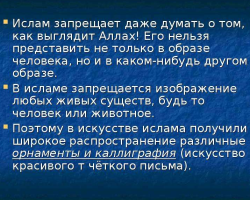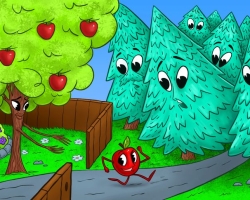“And Vaska listens, yes, eats” - a well -known phraseology, which is often used in everyday life. He has an interesting meaning.
Content
- Where does the winged expression come from, what is the source of the proverb, sayings about the cat “And Vaska listens, but eats” - origin: from what fable, works of the author of Krylov?
- “And Vaska listens, but eats”: Who said the phrase?
- Phraseologism “And Vaska listens, but eats”: direct and figurative meaning, the meaning of the proverb
- Synonyms for phraseological units "And Vaska listens, but eats"
- "And Vaska listens, but eats": a means of expressiveness
- “And Vaska listens, but eats”: particle, grammatical basis
- "And Vaska listens, but eats": examples of sentences
- Pictures on the proverb "And Vaska listens, but eats"
- Video: The fable "Cat and cook" (and Vaska listens, but eats.)
The Russian language is full of beautiful, interesting, and often strange expressions, the meaning of which can not be clear to everyone. The last category includes such phraseologism: "But Vaska listens, but eats." Since almost every second one came across this phrase, for sure many had a lot of questions in the head: what is Vaska, whom he listens and what all this means?
Read on our website another article on the topic: "Homeric laughter" phraseologism. You will learn about the history of origin, which means, you will find synonyms, examples of use, aphorisms.
We will try to answer all questions regarding the phraseological unit “And Vaska,” we will try to answer this article. You will find out where such an expression came from, which the proverbs were washed away and you will find examples of proposals. Read further.
Where does the winged expression come from, what is the source of the proverb, sayings about the cat “And Vaska listens, but eats” - origin: from what fable, works of the author of Krylov?

Perhaps the most intriguing issue regarding expression "And Vaska listens, but eats", is its origin. Let's look at where the mentioned winged expression came from. What is the source of the proverb, sayings about the cat - from what fable?
- As often happens with winged phrases that have gone into the people, expression is of literary origin.
- To be more precise, phraseologism is part of the famous fable of the author Ivan Andreevich Krylov "Cat and cook."
So it happens that the phrase, uttered by the character of a work, in a particular situation, goes into the people and begins to be applied by people to a variety of cases, it would seem, having nothing to do with the original.
“And Vaska listens, but eats”: Who said the phrase?
Now we know what work the proverb owes its appearance "And Vaska listens, but eats". But who uttered this phrase? The question is interesting, and the answer to it is further in the article.
- As already written, this phrase is part of Krylov’s fable “Cat and cook”.
- According to the plot of the work, the cook orders Kotu Vaska to guard food from the mice and goes to the tavern.
- After some time, the cook returns home, finds the cat for eating chicken and begins to report to the deed, without even trying to stop the animal.
- Consequently, while the cook read a cat of morality, he listened and continued to eat chicken calmly.
So, summing up the answer to the question of the authorship of the phrase, we make a short conclusion: phraseology belongs to the cook, who left the cat to guard the food, by his own stupidity and paid for it.
Phraseologism “And Vaska listens, but eats”: direct and figurative meaning, the meaning of the proverb
Sometimes it happens so that the meaning of words and expressions that people are seen initially, in fact, turns out to be completely different. Phraseologism "And Vaska listens, but eats", is also not devoid of hidden meaning. What is the direct and figurative meaning, what is the meaning of the proverb?
- The initial meaning of the phrase, like the whole fable, is that one person is trying to convince of something else and reports him for another opinion.
- The second, however, does not pay any attention to criticism addressed to him, doing the same as before.
- The proverb shows this situation in the most mocking and ironic form.
The hidden meaning of the proverb:
- It has a pronounced political connotation.
- The fact is that the “Cat and cook” fable was written in 1812, when the war between Russia and France began.
- At this time, Krylov Yarov criticized Emperor Alexander 1, who was trying to settle everything through negotiations, for softness and indecision. Moreover, the criticism of the fabulist was directed not only towards the emperor, but also to all the Russian nobility.
- Thus, the fable cook symbolizes Emperor Alexander 1, and the cat - Napoleon. If you look from this side, then phraseologism indicates the futility of negotiations in those situations when more decisive measures are required.
As we see, even such a funny and easy work as a fable can carry a deeper and more serious meaning. But this is not surprising. Indeed, in the end, any creation, in one way or another, reflects the inner world of its creator: his feelings, experiences and emotions. It is unlikely that there is at least one work of art in a world in which there would be no slightest and imperceptible at first glance, secret meaning.
Synonyms for phraseological units "And Vaska listens, but eats"

Phraseologism or in other words, an idiom is an expression that has established in the Russian language that does not have a semantic connection with the words that make up it. Despite the fact that each phraseology is unique in its own and, to some extent, even beautiful, it is that all of them unites-this is an opportunity to choose synonyms for them. The proverb is no exception in this sense "And Vaska listens, but eats". Let's look at the most suitable synonyms for this idiom.
So, the most suitable in meaning are the following phrases:
- Do not listen
- To not pay attention
- Do not take seriously
- Do it in your own way
- Neglect
- Score
- I don't give a damn
- Do not notice
- Ignore
- Do not wish to know
- Pass by the ears
It is worth adding that, like other phraseological units, the grammatical meaning of this expression does not comply with the norms of the Russian language, and therefore is considered grammatical archaism. In addition, this idiom does not imply rearrangements of parts within itself and is perceived as a whole when used.
"And Vaska listens, but eats": a means of expressiveness
No matter what work the phraseology belongs to and no matter how hidden meaning it possesses, it always has such a component as a means of expressiveness. Let's look at him in the phrase "And Vaska listens, but eats".
- According to experts in the Russian language and literary critics, a means of expressiveness of phraseology is a very subtle mockery that the author of the desired work expressed in a hidden form.
In general, all of the above, you can state one more capacious word. In this case, a banal irony will become a means of expressiveness of phraseology.
“And Vaska listens, but eats”: particle, grammatical basis
Any sentence and expression in Russian or any other language consists of many components and complies with the rules. Let's analyze the components and determine the grammatical basis of the expression "And Vaska listens, but eats".
- First, it should be recalled what the grammatical basis of the proposal is. This term is the scheme of the structure of the proposal itself, which consists directly of the main members: a predicate with the subject, either both of them together, or one one. In the case of the above proverb, the following parts are the grammatical basis of the proposal: Vaska listens, eats.
- Another component of any proposal is its parts such as particles and unions. So, a particle of the sentence is called the “service part of speech”, the task of which is to add various emotional shades in the sentence, as well as shades of meaning and creating the form of the word. Analyzing the components of the expression "And Vaska listens, but eats", it is worth saying that in this case, the word is a particle "Yes".
As we see, the Russian language is really complicated, so much so that even the analysis of parts of a small sentence can have a decent amount of information. This once again indicates how important it is to learn the Russian language, with all its rules and subtleties. For it is simply impossible to master the cultural speech and a rich vocabulary.
"And Vaska listens, but eats": examples of sentences
We dismantled and examined all possible issues regarding phraseological units "And Vaska listens, but eats". It remains only to give an example several proposals containing the proverb we are considering to consolidate the information received.
- "And Vaska listens, but eats!" - said mom, taking the toy from her son.
- The teacher looked around the whole class and noticing at the last desk of the student, who was in the clouds, slowly rose from her seat. “And Vaska listens, but eats,” the woman said.
- The partner, was deaf and him, seemed to be guided by the principle from the famous fable “Cat and cook”: “But Vaska listens and eats.”
Thanks to these sentences, one can understand how capacious and acute this short phraseologism is, especially if you fall to the very point.
Pictures on the proverb "And Vaska listens, but eats"
It is impossible to argue that the works of Ivan Andreevich Krylov have long become folk and parted into quotes. A huge number of quotes and proverbs entered the Russian language and enriched it, precisely thanks to the fables of this writer. One of the examples of this phenomenon was phraseologism "And Vaska listens and eats". The picture for this proverb is also popular:



Video: The fable "Cat and cook" (and Vaska listens, but eats.)
Read on the topic:







